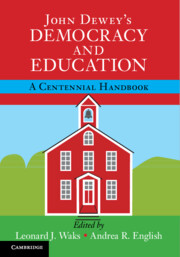Part I - Companion Chapters
Published online by Cambridge University Press: 20 April 2017
- Type
- Chapter
- Information
- John Dewey's Democracy and EducationA Centennial Handbook, pp. 3 - 244Publisher: Cambridge University PressPrint publication year: 2017



